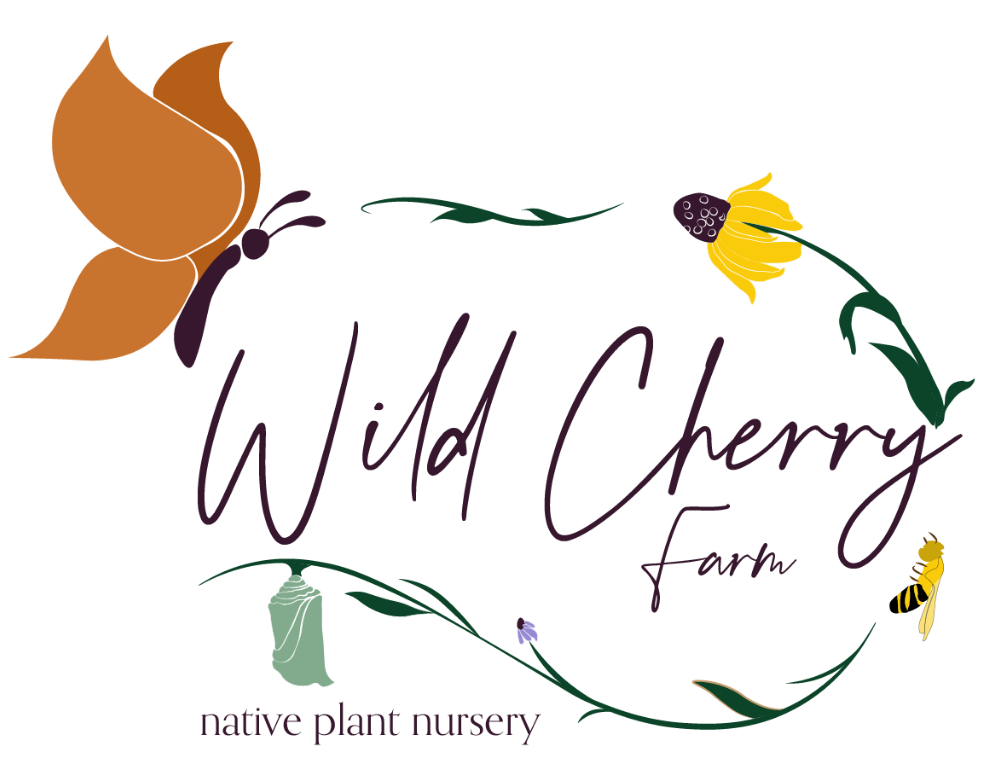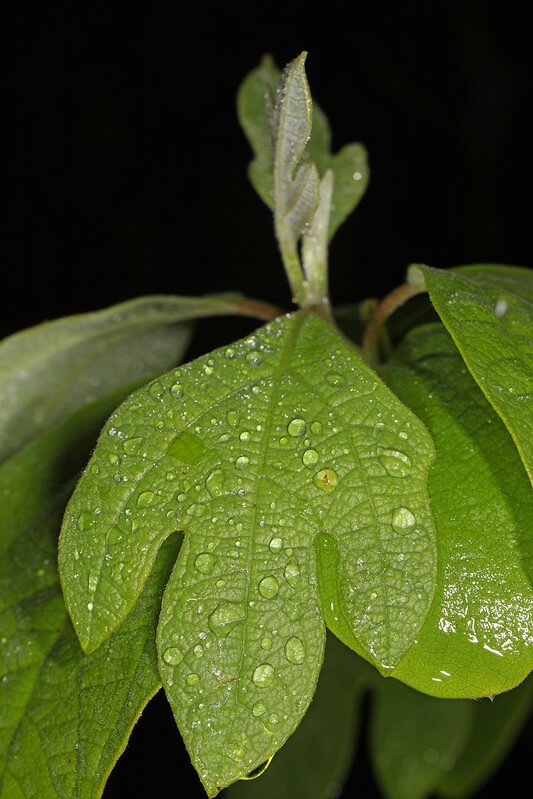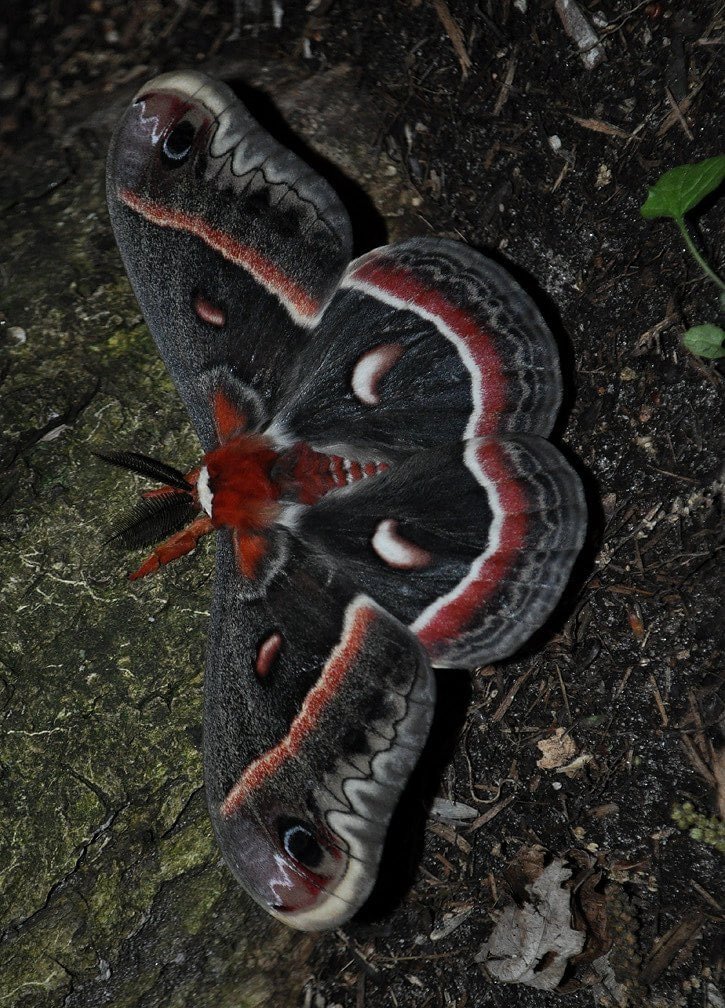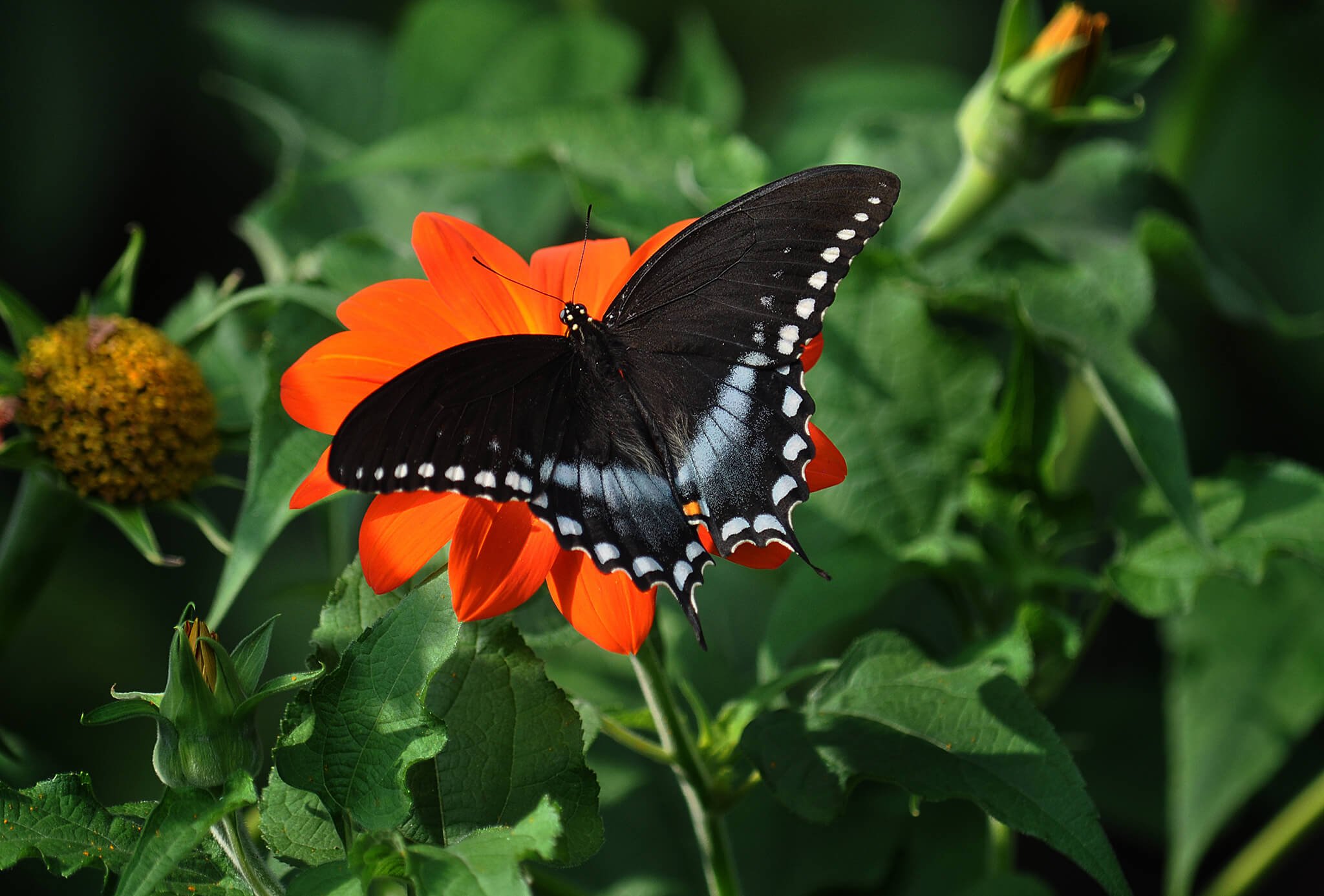Aromatic Aster (Symphyotrichum oblongifolium)
Aromatic Aster is native to the west and south of Michigan. I have included it because it does well in full sun and dry conditions which we may see more of in the future. The flowers are visited by a variety of native bees, butterflies, and skippers (Illinoiswildflower.info). It is a host to the Silvery Checkerspot and 39 other species of butterflies and moths in our area (Illinoiswildflower.info) and a recommended monarch nectar source by Xerces Society (Xerces.org). I suspect that it is a host plant of some specialist bees, like most members of the Symphyotrichum family. However, I could not find anything specific. Wild Turkeys eat the seeds and potentially some other upland gamebirds (Illinoiswildflower.info). Aromatic Aster does spread by rhizomes, so I can be vigorous if the conditions are right.
Photo credit: Joshua Mayer
Aromatic Aster is native to the west and south of Michigan. I have included it because it does well in full sun and dry conditions which we may see more of in the future. The flowers are visited by a variety of native bees, butterflies, and skippers (Illinoiswildflower.info). It is a host to the Silvery Checkerspot and 39 other species of butterflies and moths in our area (Illinoiswildflower.info) and a recommended monarch nectar source by Xerces Society (Xerces.org). I suspect that it is a host plant of some specialist bees, like most members of the Symphyotrichum family. However, I could not find anything specific. Wild Turkeys eat the seeds and potentially some other upland gamebirds (Illinoiswildflower.info). Aromatic Aster does spread by rhizomes, so I can be vigorous if the conditions are right.
Photo credit: Joshua Mayer
Aromatic Aster is native to the west and south of Michigan. I have included it because it does well in full sun and dry conditions which we may see more of in the future. The flowers are visited by a variety of native bees, butterflies, and skippers (Illinoiswildflower.info). It is a host to the Silvery Checkerspot and 39 other species of butterflies and moths in our area (Illinoiswildflower.info) and a recommended monarch nectar source by Xerces Society (Xerces.org). I suspect that it is a host plant of some specialist bees, like most members of the Symphyotrichum family. However, I could not find anything specific. Wild Turkeys eat the seeds and potentially some other upland gamebirds (Illinoiswildflower.info). Aromatic Aster does spread by rhizomes, so I can be vigorous if the conditions are right.
Photo credit: Joshua Mayer









